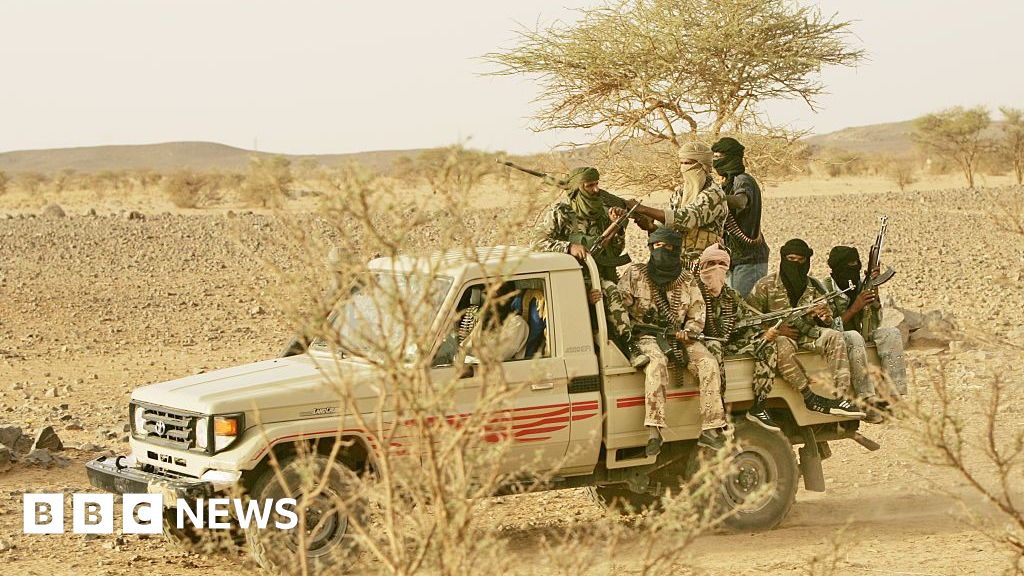
Senegal-Mali trade threatened as militants set lorries ablaze near Kayes

Threatened Trade: The Blockade Impacting Senegal-Mali Relations
Overview of the Situation
In recent weeks, the trade route between Senegal and Mali has come under severe threat due to the actions of Islamist militants in the region. Fuel tankers have been set ablaze, and lorry drivers have faced ambushes and extortion, leading to a significant blockade that could have dire economic consequences for the landlocked nation of Mali. Prime Minister Abdoulaye Maïga has acknowledged the severity of the situation and stated that measures are being taken to enhance security on these crucial trade routes.
The Blockade and Its Implications
The blockade, which represents a dangerous escalation of Mali’s ongoing jihadist insurgency, is particularly impacting the supply of fuel—an essential resource for the country. The Sahel region of West Africa has become a focal point for global terrorism, accounting for over 50% of all terrorism-related deaths worldwide. Analysts suggest that the al-Qaeda-linked militants, specifically Jama’at Nusrat al-Islam wal-Muslimin (JNIM), aim to impose a blockade on Mali’s capital, Bamako, to exert control over the region.
Origins of the Blockade
The blockade reportedly began in early September when six Senegalese lorry drivers were kidnapped along the Dakar-Bamako corridor. This tactic is not new for JNIM, but the scale of their operations has become increasingly ambitious. The militants have set up checkpoints in key locations, including the Kayes region, which serves as a critical gateway for food supplies entering from Senegal, and Nioro-du-Sahel, which connects Mali to Mauritania. Reports indicate that militants have torched fuel tankers and lorries, abducted foreign drivers, and attacked convoys transporting fuel from neighboring countries.
Economic Impact on Local Communities
The blockade has led to economic stagnation in entire villages, with markets closed, transportation disrupted, and public services severely affected. Mamadou Bodian, an analyst from Senegal’s Cheikh Anta Diop University, noted that the militants’ goal is “economic asphyxiation,” indicating a strategic shift away from military confrontation to economic disruption. If the embargo on Kayes and Nioro-du-Sahel is successfully implemented, it could paralyze western Mali, with devastating effects on local economies.
Government Response
Initially, the Malian military downplayed the blockade’s significance. Colonel Souleymane Dembélé, the military spokesman, dismissed reports of a siege as part of an “information war” orchestrated by foreign media. He claimed that the videos circulating on social media showing besieged vehicles were outdated and that no systemic interruption of transport had been observed. Instead, he attributed challenges in the Kayes region to the rainy season rather than militant actions.
Despite these statements, the Malian army has conducted airstrikes against JNIM camps and claimed to have killed several militants while conducting operations in the Kayes region. However, local residents report continued presence of militant checkpoints, and transport companies have suspended their operations due to ongoing intimidation.
The Strategic Importance of Kayes
The Kayes region is crucial to Mali’s economy, accounting for approximately 80% of the country’s gold production and serving as a vital logistics hub for international trade. As a landlocked nation, Mali relies heavily on its neighboring countries for essential goods, including fuel and food. The blockade not only disrupts local life but also poses a direct threat to the economic stability of Bamako, the capital.
The Timbuktu Institute, based in Dakar, has noted that the jihadists consider Kayes a strategic target, aiming to disrupt supplies and destabilize the Malian economy. This blockade also marks a geographical expansion of JNIM’s insurgency, which has traditionally focused on northern and central Mali. By targeting Kayes, the militants are not only widening their operational footprint but also threatening to encircle Bamako.
Broader Implications of the Crisis
Mali has been grappling with a security crisis since 2012, fueled by violence from groups linked to al-Qaeda and the Islamic State, as well as other armed militias. The recent isolation of parts of southern Mali by JNIM raises concerns about potential spillover effects into neighboring coastal countries. The Union of Senegalese Truckers has condemned the actions of the militants, highlighting the threat posed to regional trade, which is vital for both Senegal and Mali.
In 2022, Mali was Senegal’s main African trade partner, with exports exceeding $1.4 billion. The Bamako-Kayes route is critical for transporting essential goods, including fuel, cement, and foodstuffs. The possibility of a prolonged siege not only threatens trade but also erodes confidence in Malian state institutions, revealing the fragility of the current government.
Conclusion
The blockade in Kayes is more than just a localized conflict; it signifies a new phase in the jihadist insurgency in Mali, with economic repercussions that extend well beyond its borders. As the situation evolves, the international community and regional stakeholders must remain vigilant to the potential ramifications of this crisis.
Key Facts
– **Location of Blockade**: Kayes and Nioro-du-Sahel regions in Mali.
– **Key Players**: Islamist militants linked to al-Qaeda, specifically Jama’at Nusrat al-Islam wal-Muslimin (JNIM).
– **Economic Impact**: Significant disruption to fuel and food supplies, affecting local economies and trade with Senegal.
– **Government Response**: Initial downplaying of the blockade’s significance, followed by military operations against JNIM.
– **Strategic Importance**: Kayes accounts for about 80% of Mali’s gold production and is essential for trade routes.
Source: www.bbc.com


